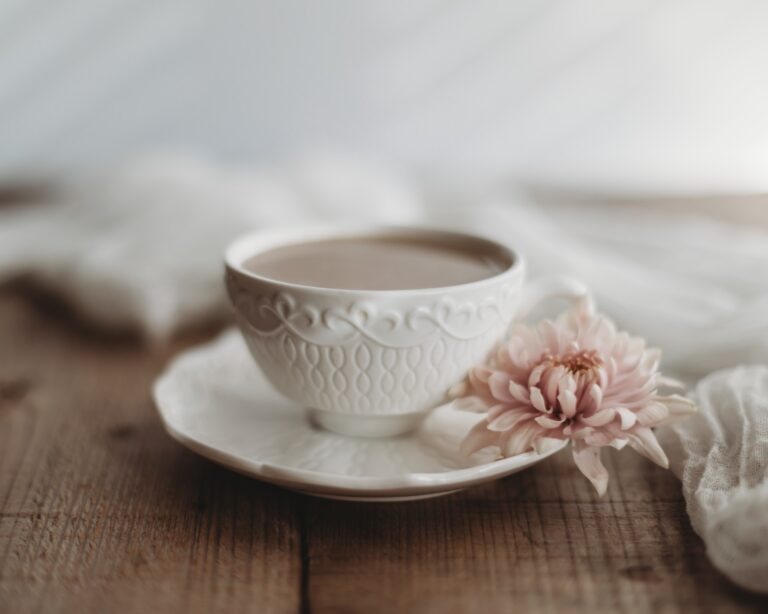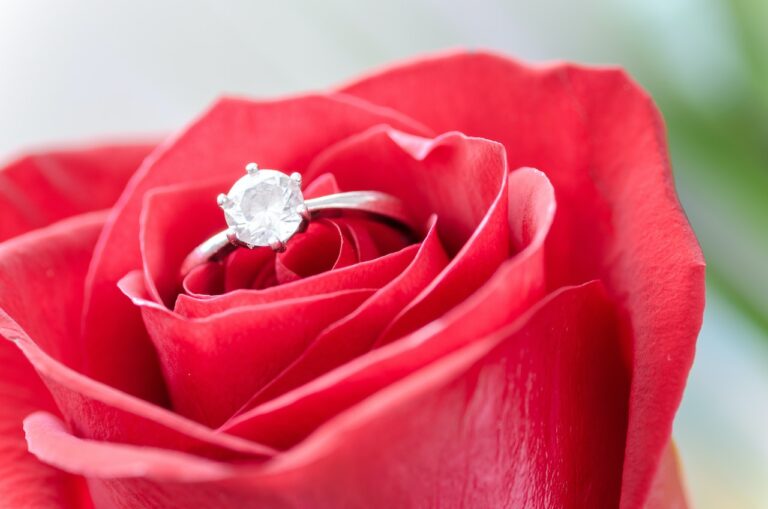Hobbies in Japanese culture carry a rich heritage from centuries ago, coupled with current trending entertainment taking pop culture by storm.
Japanese hobbies encompass a diverse range of activities that cater to various interests.
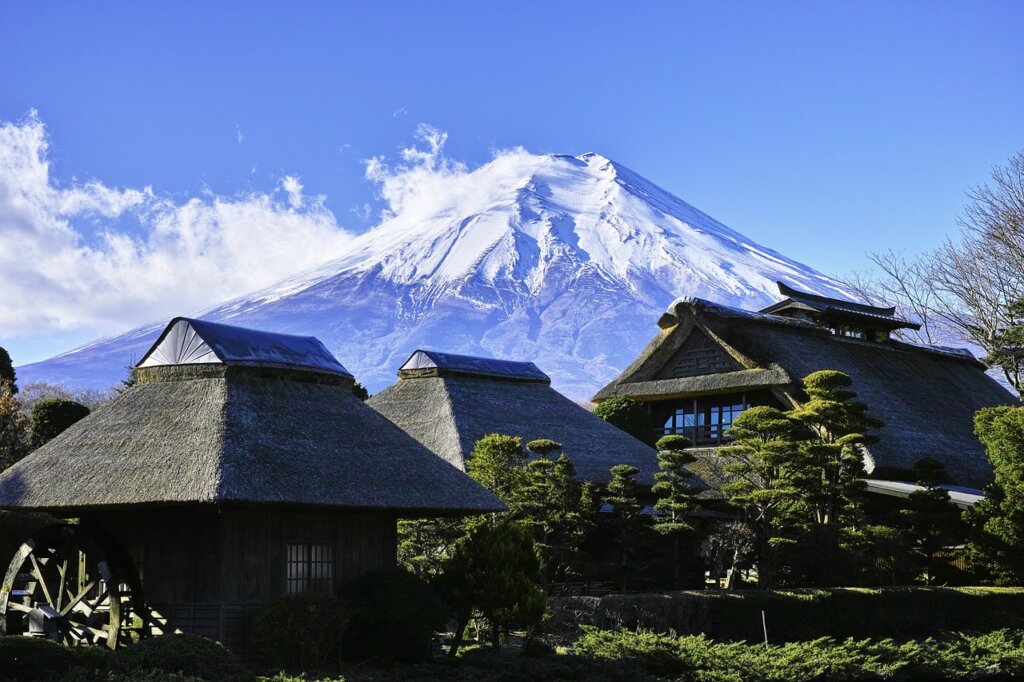
Whether you’re into traditional Japanese culture or the newest trends in pop culture, there is something here for you!
Exploring the World of Japanese Hobbies
Japanese hobbies offer a fascinating window into the vibrant culture of Japan.
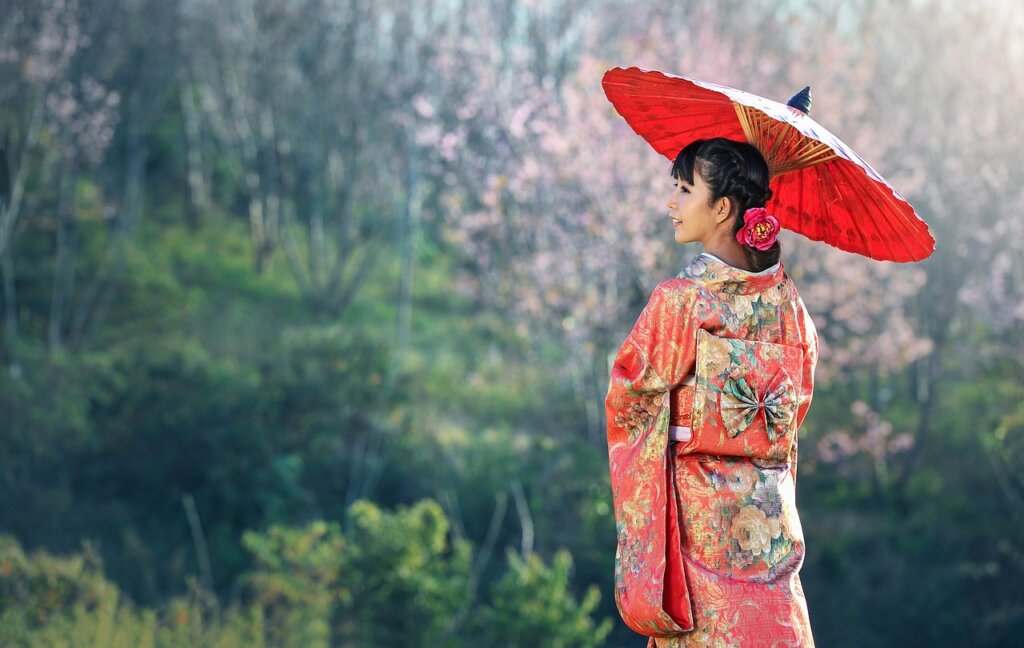
With a plethora of hobbies to choose from, Japan will leave you captivated and longing for more.
So, embark on a journey filled with creativity, tradition, and endless possibilities through the captivating realm of Japanese hobbies.
Traditional Japanese Hobbies
In Japan, traditional hobbies hold a special place in the hearts of the people. These hobbies not only allow individuals to express their creativity but also embody the rich cultural heritage of Japan.
Let’s delve into some of the most beloved traditional hobbies in Japan:
Ikebana – Japanese Flower Arrangement
Ikebana, the art of Japanese flower arrangement, is not just about placing flowers in a vase but is a meticulous art form that is deeply rooted in Japanese culture. I
t focuses on the harmony and balance between nature and humanity.
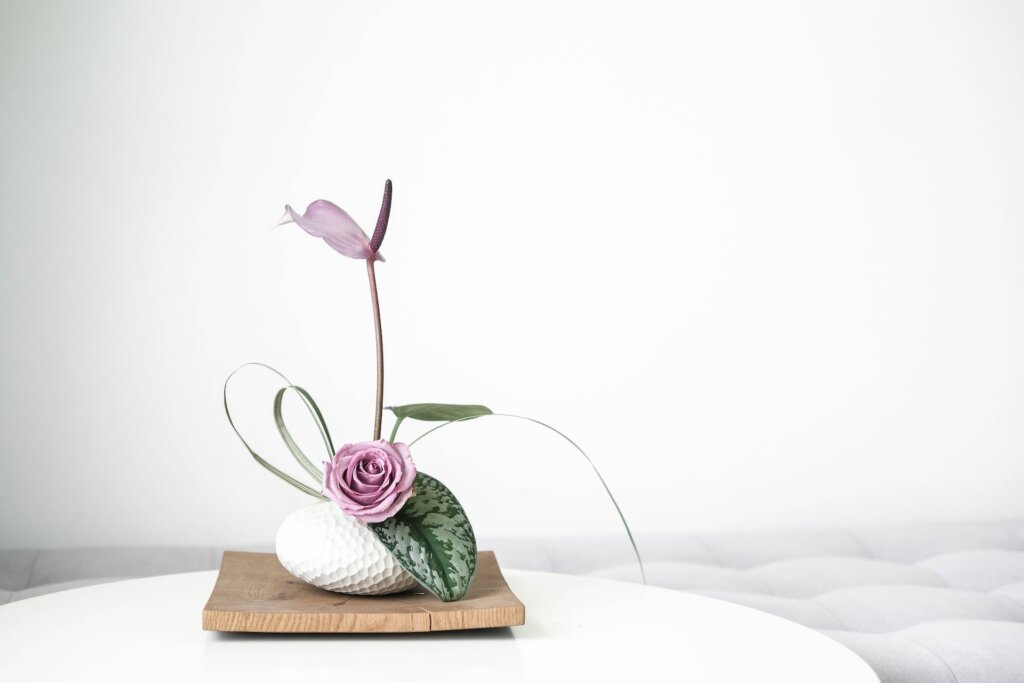
Ikebana practitioners carefully select and arrange flowers, branches, and leaves to create a harmonious composition that captures the essence of simplicity and elegance.
Origami – The Art of Paper Folding
Origami, the ancient art of paper folding, has gained worldwide popularity.
With just a single sheet of paper, intricate designs and shapes can be created through precise folding techniques.
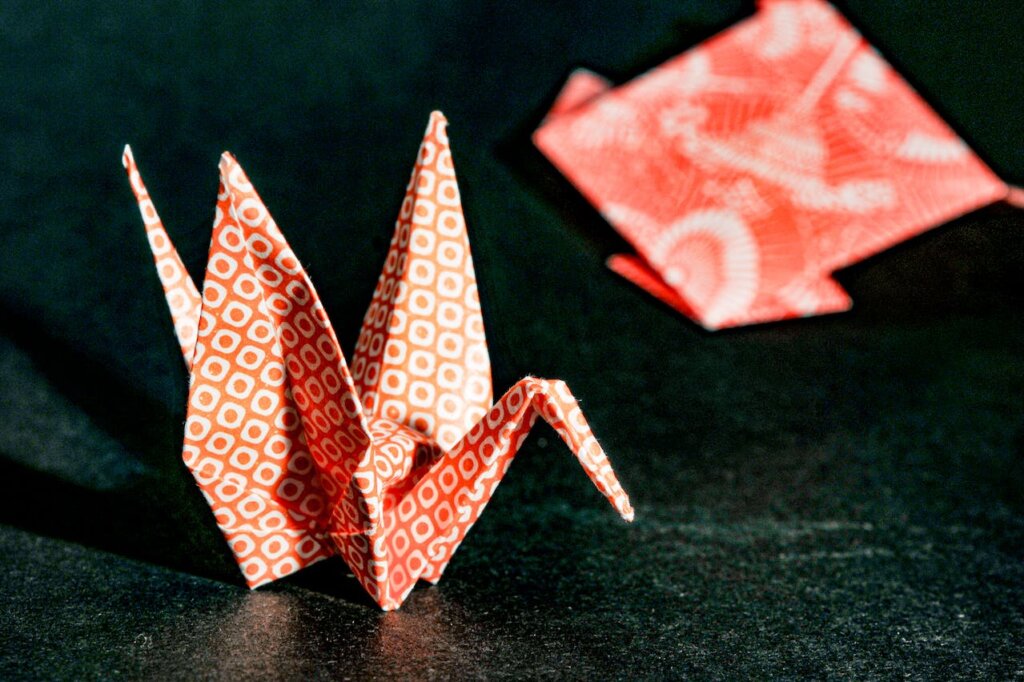
This meditative practice not only stimulates creativity but also enhances concentration and mindfulness.
Bonsai – Miniature Tree Cultivation
The art of bonsai, originating in China but perfected in Japan, involves cultivating and pruning miniature trees, creating a sense of tranquility and harmony.
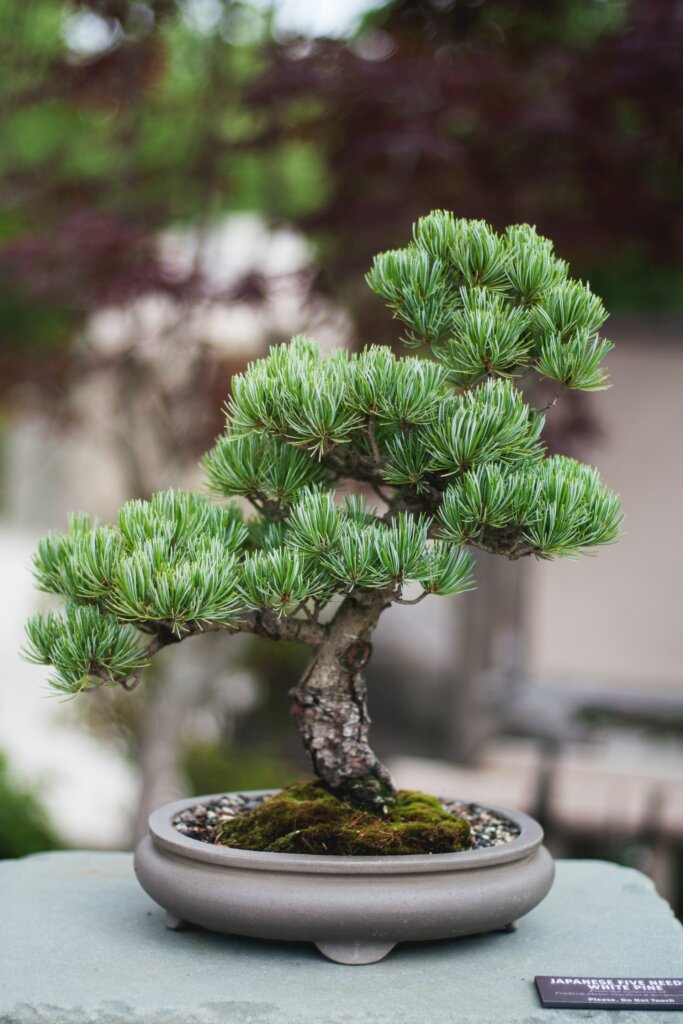
Bonsai enthusiasts devote years to training and shaping these small living trees, symbolizing nature in its miniature form.
Shodo – Japanese Calligraphy
Shodo, the way of calligraphy, is both an art form and a spiritual practice in Japan.
By using brush and ink, calligraphers carefully write Japanese characters, expressing elegance, precision, and depth of emotion in each stroke.
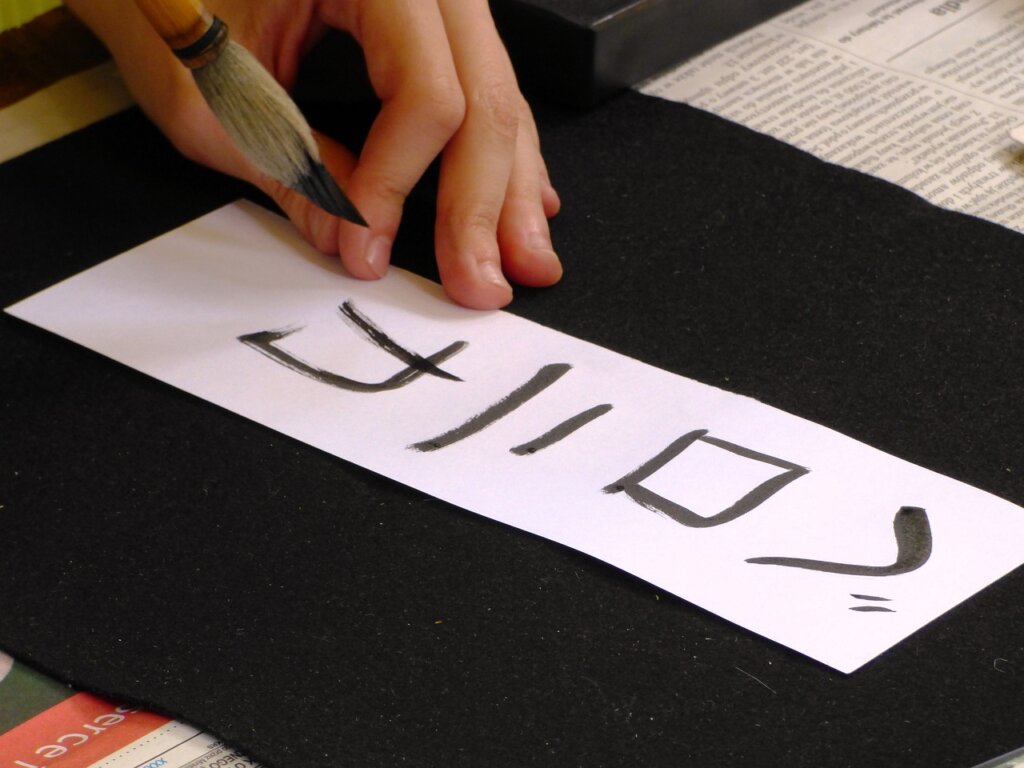
Shodo serves as a way to quiet the mind and cultivate patience and mindfulness.
Sado / Chanoyu – Tea Ceremony
Japanese hobby “sado” or “chanoyu” is a traditional tea ceremony that holds deep cultural significance in Japan.
It is a meticulous practice that involves the preparation and serving of matcha, powdered green tea, in an aesthetically pleasing and harmonious manner.
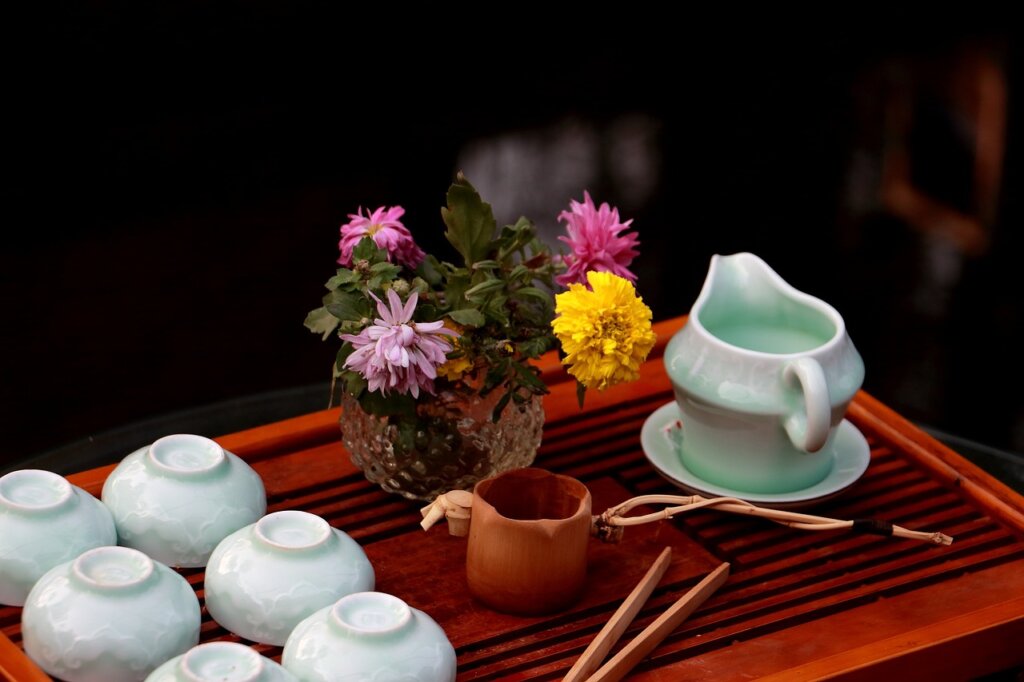
Sado emphasizes mindfulness, respect, and the appreciation of simplicity. Participants engage in a series of prescribed movements and gestures, all aimed at creating a serene and hospitable atmosphere for guests.
This art form has been practiced for centuries and continues to be a cherished aspect of Japanese culture, offering a unique and immersive experience for those who partake in it.
Sushi
Sushi, a traditional Japanese dish, makes meals into an art form. The precise technique of slicing fresh fish, skillfully rolling delicate rice, and the careful arrangement of colorful ingredients, all create a visually stunning masterpiece.
It is a hobby that requires patience, attention to detail, and a love for exquisite flavors.
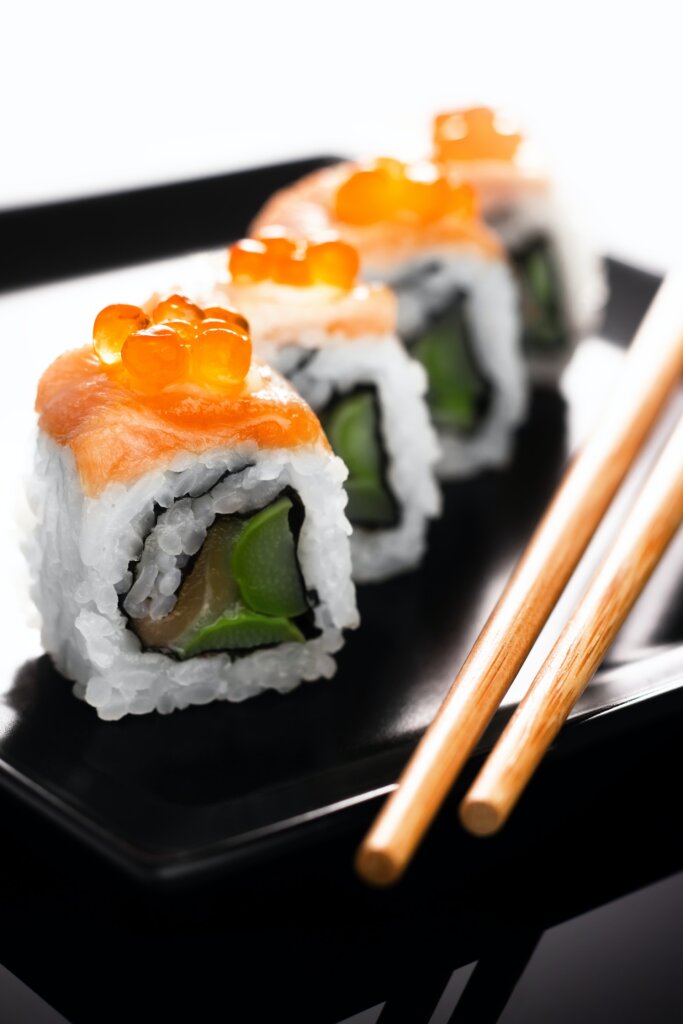
Whether it’s learning to make sushi at home or exploring different sushi restaurants, this hobby allows enthusiasts to immerse themselves in the rich culinary traditions of Japan while savoring every bite.
Japanese Martial Arts as Hobbies
If you’re looking for a unique and engaging way to spend your time, Japanese martial arts can be an excellent choice.
These disciplines not only provide physical fitness benefits but also offer a deeper understanding of the rich Japanese culture and philosophy.
Let’s explore three popular Japanese martial arts that can be pursued as hobbies: Karate, Judo, and Kendo.
Karate – The Way of the Empty Hand
Karate, which translates to “empty hand,” is a martial art with deep roots in Okinawa, Japan. It focuses on striking techniques using punches, kicks, knee strikes, and elbow strikes.
Karate emphasizes the development of mental discipline, physical strength, and self-defense skills.

Practitioners learn various kata (forms) that combine defensive and offensive techniques in a pre-determined sequence. These katas help improve coordination, balance, and concentration.
Click here to find a dojo near you!
Judo – The Gentle Way
Judo, known as “the gentle way,” is a martial art and combat sport developed by Jigoro Kano in Japan.
Unlike Karate, which focuses on striking, Judo primarily revolves around throws, grappling, and submission techniques.
It promotes physical fitness, mental discipline, and effective self-defense through efficient use of body movements and leverage.

Judo practitioners (judoka) aim to use an opponent’s strength and momentum against them, rather than relying purely on brute force.
This makes Judo an excellent choice for individuals who want to develop technique and strategy while maximizing efficiency.
Kendo – The Way of The Sword
Kendo, often referred to as “the way of the sword,” is a modern Japanese martial art that evolved from traditional samurai swordsmanship.
Practitioners engage in simulated sword fights using bamboo swords called shinai and protective armor known as bogu.
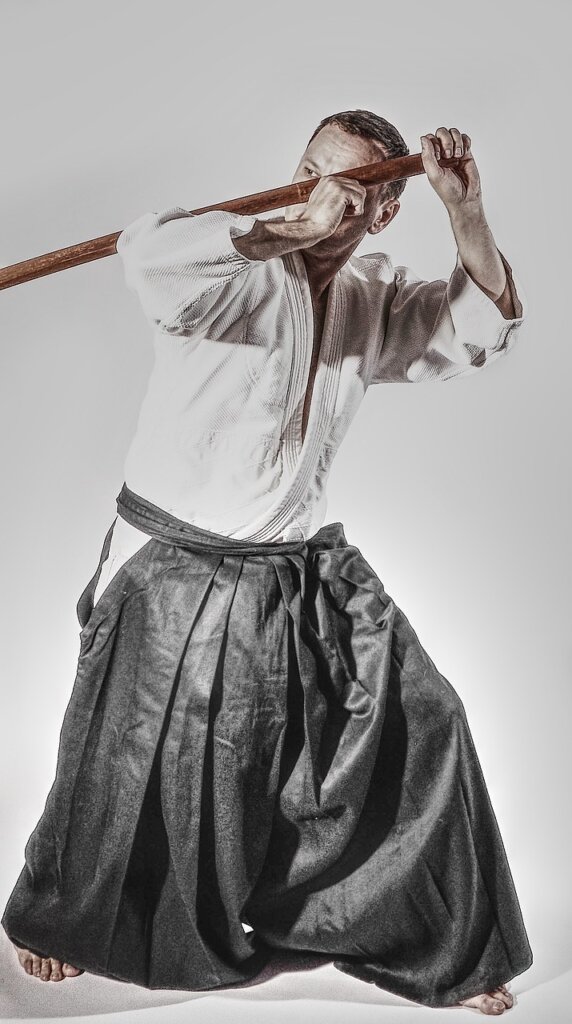
Kendo emphasizes discipline, precision, and the development of a strong spirit.
Modern Japanese Hobbies
Japan also contributes multiple hobbies to todays modern pop culture. Lets take a look at a few!
Manga and Anime Fandom
Manga and anime are an integral part of Japanese popular culture, captivating fans both within the country and around the world.
Manga refers to Japanese comic books, while anime denotes animated shows and movies.

Japanese manga and anime enthusiasts actively engage in collecting, reading, and discussing their favorite series.
Fans immerse themselves in the captivating storylines, intricate artwork, and rich characters that define these mediums.
The influence of manga and anime fandom extends far beyond entertainment. It has inspired various creative outlets, such as cosplay and fanart, fostering a vibrant and passionate community of enthusiasts.
Cosplay Culture in Japan
Cosplay, short for “costume play,” is a popular pastime in Japan that involves dressing up as a character from a manga, anime, video game, or other forms of media.
Cosplayers meticulously recreate the outfits and appearance of their chosen characters, often attending conventions and events to showcase their costumes.
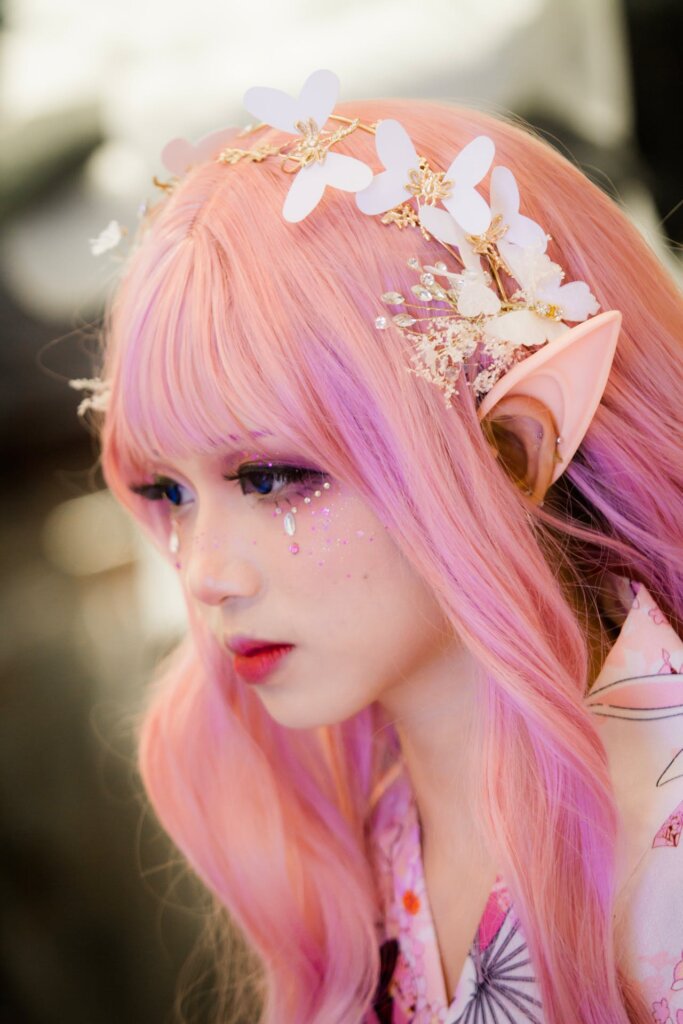
In Japan, cosplay is deeply ingrained in the culture, with dedicated cosplay cafes, themed events, and even entire districts like Akihabara in Tokyo catering to enthusiasts.
The cosplay community fosters creativity, craftsmanship, and a sense of camaraderie among fans.
Video Gaming in Japan
Japan has long been a hub for video gaming, with a rich history of influential game developers and iconic gaming franchises.
From classic arcade games to cutting-edge console and mobile gaming, Japan continues to be at the forefront of the industry.
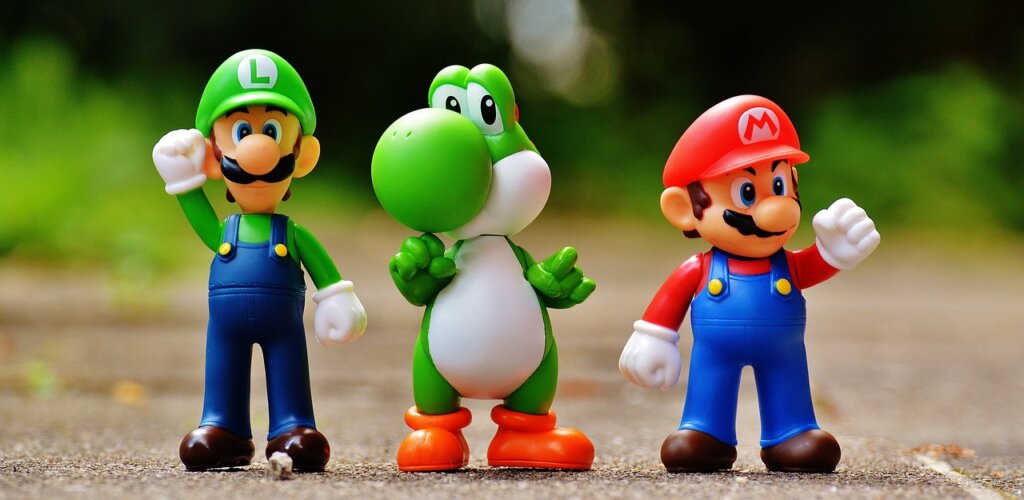
Japanese gamers are known for their expertise and dedication, with a wide range of gaming genres and platforms available to suit every interest.
From role-playing games (RPGs) like Final Fantasy to competitive multiplayer games like Street Fighter, the gaming landscape in Japan caters to diverse preferences.
Unique Japanese Hobbies
When it comes to hobbies, Japan offers a wide array of unique and fascinating options that showcase the country’s rich culture and traditions.
Let’s explore some of these distinctive pastimes:
Dekotora – Decorated Trucks Craze
One of the most visually stunning hobbies in Japan is the Dekotora, which stands for “decoration trucks.” These dazzlingly adorned trucks can be seen driving through the streets, especially at night.
The Dekotora culture emerged in the late 1970s and continues to thrive today, with enthusiasts customizing their vehicles with extravagant lights, chrome accessories, and intricate artwork.
Purikura – Japanese Photo Booths Culture
Japanese photo booths, commonly known as Purikura, have become an integral part of modern Japanese culture. Unlike regular photo booths,
Purikura booths offer a plethora of fun features and editing options.

These booths allow visitors to take pictures and decorate them with colorful stickers, text, and various digital embellishments.
Purikura photos are often printed in a small sticker format, making them popular among friends to exchange and collect as mementos.
Hanami – Cherry Blossom Viewing
One of the most cherished and symbolic hobbies in Japan is Hanami, the tradition of cherry blossom viewing.
Every spring, when cherry trees bloom in mesmerizing shades of pink and white, people gather in parks and gardens to appreciate the ephemeral beauty of the blossoms.
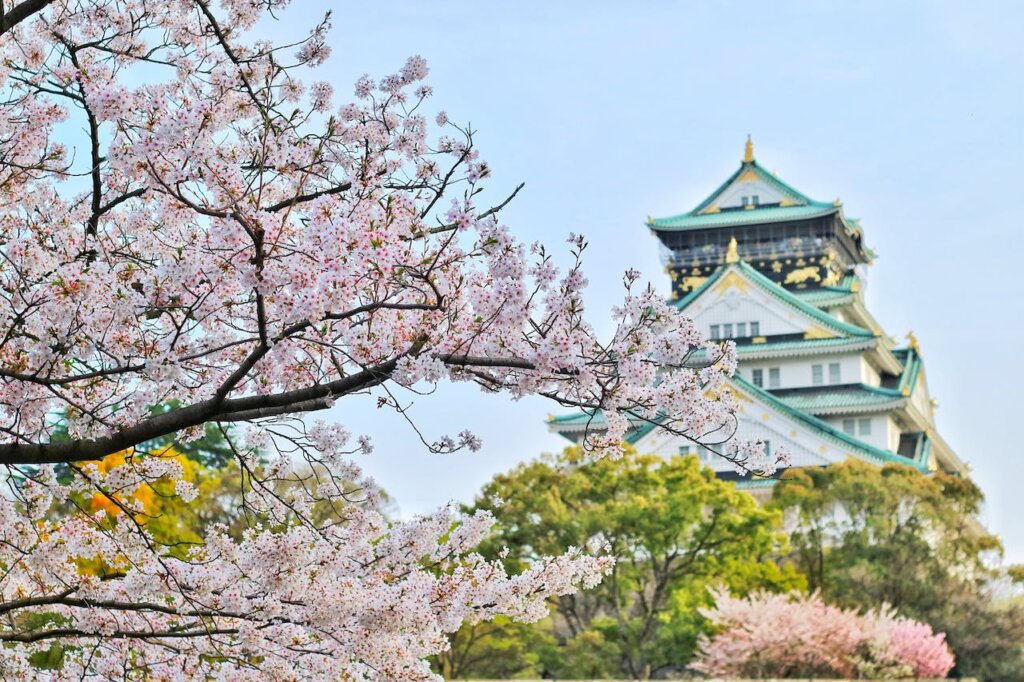
Hanami is a time for celebration, relaxation, and reflection as friends, families, and colleagues picnic under the blooming trees.
It is an opportunity to enjoy nature’s breathtaking display and embrace the arrival of spring.
Karaoke
We couldn’t end this article without the classic Japanese hobby of karoke! Not just a popular pastime but also a cultural phenomenon that holds a special place in the hearts of both locals and visitors.
Whether you’re an aspiring singer or just looking for a fun night out with friends, karaoke is an activity that promises laughter, entertainment, and perhaps even a chance to showcase your hidden singing talents.
Let’s dive deeper into the world of karaoke in Japan.
The History of Karaoke
Karaoke, a combination of the Japanese words “kara” (meaning empty) and “oke” (short for orchestra), was first introduced in Japan in the early 1970s.
It was invented by Daisuke Inoue, who created a machine that played instrumental versions of popular songs while providing lyrics for people to sing along.
Karaoke Culture in Japan
In Japan, karaoke is not just about singing; it’s a social activity that brings people together.
It’s common for friends, colleagues, and even families to gather at karaoke establishments to bond, celebrate, or simply have a good time.
Conclusion
Exploring Japanese hobbies can be an exciting and enriching experience. By immersing ourselves in these activities, we not only cultivate new skills but also gain a deep appreciation for the beauty and craftsmanship that define Japanese traditions.
Do you have a favorite Japanese hobby? Tell me all about it in the comments below!
Looking for a new hobby? Here’s a few articles to help you out!
Until next time, stay cozy my friend.



